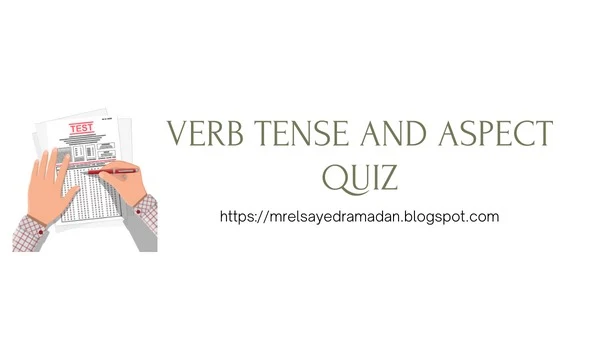1/9
Developing the first hydrogen cell engine, the team should hope to reveal it at the technology expo this December.
NO CHANGE
Having developed the first hydrogen cell engine, the team would hope
Developing the first hydrogen cell engine, the team hopes
Having developed the first hydrogen cell engine, the team hopes
Explanation: This sentence is trying to convey not only what the team is hopeful about, but why the team is hopeful. Choice A is incorrect because the present participle developing implies that the developing and the hoping were concurrent, which is illogical. Since the hoping depends on the completion of the development, the consequential participle having developed is required, as in choices B and D. Choice B is redundant because hope to reveal already conveys subjunctive potential, so the auxiliary would is unnecessary.
2/9
Without spending so much as an hour on research, Dale already wrote the first draft of her term paper.
NO CHANGE
having spent so much as an hour on research, Dale has already written
spending so much as an hour on research, Dale has written
having spent so much as an hour on research, Dale has already wrote
Explanation: Common sense tells us that the research must be at least partially completed before the first draft of a term paper can be completed, so the consequential participle having spent is required to show this relationship. Also, the adverb already, without any other time specification, refers to a current status, and therefore the main verb must take the present consequential form, has written, as in choice B.
3/9
As soon as Hannah arrived home from vacation, she had immediately started to plan her next trip.
NO CHANGE
had arrived home from vacation, she
had arrived home from vacation, she had
arrived home from vacation, she
Explanation: The phrase as soon as indicates that this sentence is referring to concurrent events. Therefore, any use of the consequential aspect is illogical. Choice D is correct because it is the only one that does not use the consequential aspect.
4/9
Having taken the wrong path, the hikers feared that they might not be able to reach base camp by nightfall.
NO CHANGE
Taking the wrong path, the hikers feared
Having taken the wrong path, the hikers had feared
Taking the wrong path, the hikers had feared
Explanation: The use of the consequential participle having taken in the original phrasing is most logical, because the fear described in the main clause could not set in before the hikers were well along on the wrong path. Choice C is incorrect, however, because the past consequential had feared implies that the fear is an antecedent rather than a consequence.
5/9
Although Pinocchio may seem like a quaint children’s story, its characters would represent some of the central archetypes from Greek, Roman, Judeo-Christian, and even Babylonian mythological traditions.
NO CHANGE
represented
represent
had represented
Explanation: Choice A is incorrect because this sentence is stating a fact, and therefore should take the indicative mood rather than the subjunctive mood. Choices B and D are incorrect because the verb seems has already established that this sentence is in the artistic present, and not the past tense.
6/9
Elayna is well-qualified for this position because she has performed very well as a team leader on many similar projects.
NO CHANGE
had performed
would perform
was performing
Explanation: The use of the present tense in first clause establishes that the sentence is describing a current status. Therefore the present tense indicative mood is required, as in choice A. The present consequential has performed is appropriate here because her previous performance clearly extends a consequence to her current status, which explains why she is well-qualified.
7/9
Hundreds of recreational divers come each year to explore the site where the galleon had sank over three hundred years ago.
NO CHANGE
sank
has sunk
has sank
Explanation: Choices A and D are incorrect because the consequential aspect requires the past participle sunk rather than the simple past tense sank. Choice C is incorrect because the phrase over three hundred years ago indicates that the verb must be in the past tense.
8/9
At his death in 2010, J.D. Salinger was regarded as one of the premier writers of the 20th-century, he had only published one full-length novel, The Catcher in the Rye.
NO CHANGE
although he would have published only
despite having published only
although he would publish only
Explanation: Choice A is incorrect because it commits a comma splice. Choices B and D are incorrect because the sentence is indicating a fact, and therefore should take the indicative mood and not the subjunctive mood. The use of the consequential participle having published in choice C is correct because this fact extends a consequence to his status when he died.
9/9
In Twenty Thousand Leagues Under the Sea, Jules Verne predicted the electric submarine, a device that would not be invented for another 90 years.
NO CHANGE
had not been invented
would not have been invented
will not be invented
Explanation: Although the main clause is discussing a work of literature, it is making a historical claim about one of Jules Verne’s predictions, and therefore the main verb takes the historical past tense, predicted, rather than the artistic present. The underlined phrase indicates a fact that we might call retroconsequential: a future event (rather than a previous one) extends a consequence to a status. The proper form for this kind of “future-in-thepast” aspect is would not be invented, as in choice A. Choice B is incorrect because it uses the consequential aspect, which applies to a previous event rather than a future one. Choice C is incorrect because it uses a subjunctive form, but the statement is not counterfactual or hypothetical. Choice D is incorrect because it uses the simple future tense, which is illogical in this context.

